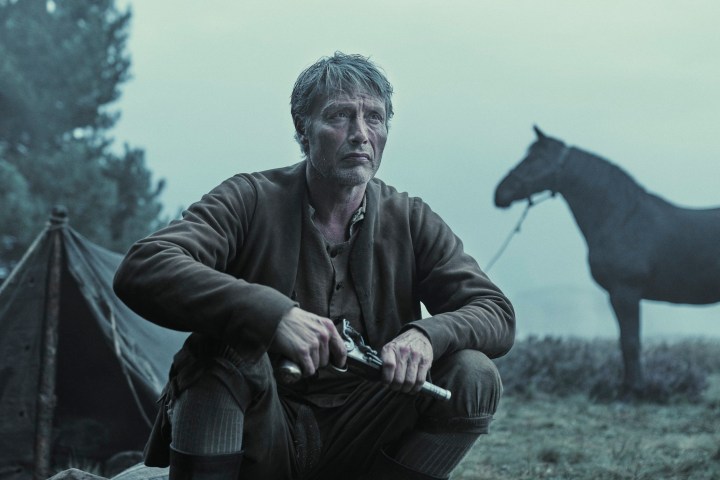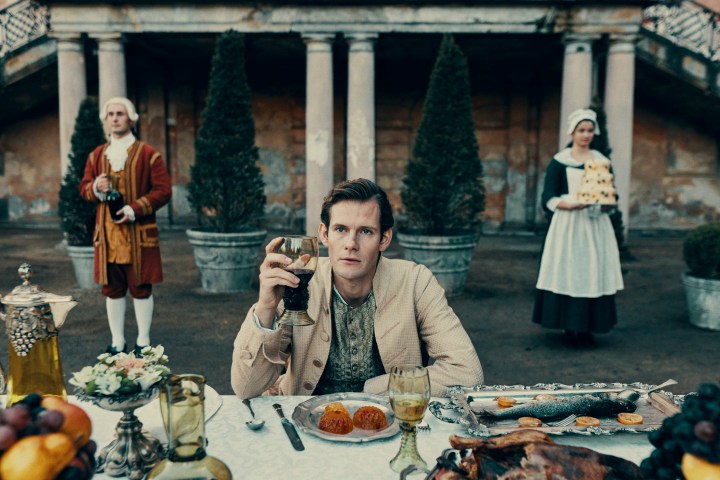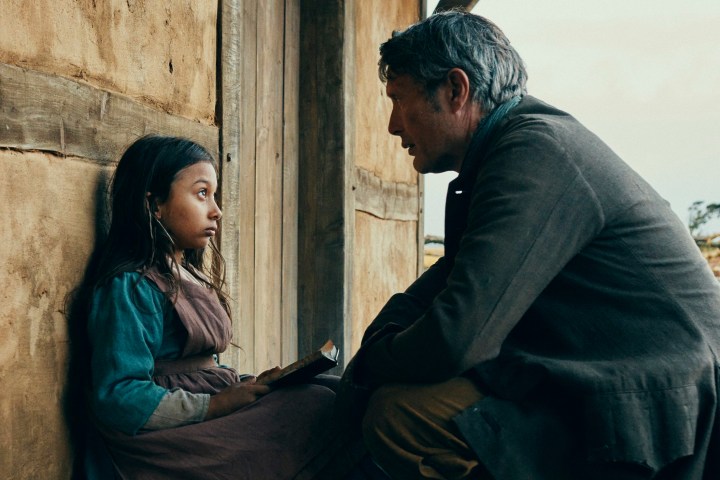“Director Nikolaj Arcel's The Promised Land is a visually stunning, thoughtfully made drama.”
- Mads Mikkelsen's quietly captivating lead performance
- Rasmus Videbæk's visually rich cinematography
- Nikolaj Arcel's sturdy, unobtrusive direction
- An ending that doesn't hit with as much weight as it should
- Several underdeveloped supporting characters
The Promised Land is a brutal, unforgiving drama about the danger of ambition and the greed that seems to drive so many who are already in power. I found it oddly comforting. As strange as that may sound, the film is a rare beast in the world of contemporary moviemaking. It’s a modestly budgeted, well-constructed historical epic made with such clear care and craft that one feels permitted to sit back and let it take you wherever it wants. Once upon a time, period dramas like it used to be far more common than they are now. In 2024, they seem reserved for directors like Martin Scorsese (Silence) and Ridley Scott (Napoleon) — masters well-versed in bringing history’s lost worlds to life.
For that reason, The Promised Land feels like a bit of a miracle. The film, Danish writer-director Nikolaj Arcel’s follow-up to his underwhelming 2017 Stephen King adaptation, The Dark Tower, isn’t the most narratively sophisticated drama you’ll see this year. The story it tells is broad in both its scope and emotions, but the spell it casts is frequently mesmerizing. With one of the world’s greatest actors as its lead, The Promised Land also grounds itself in a taciturn and yet quietly, beautifully expressive performance.

Based on a book by Danish author Ida Jessen, the film stars Mads Mikkelsen as Captain Ludvig Kahlen, a poor officer of the German army who, in the wake of his retirement, seeks permission to try building a farm in the fields of Denmark’s expansive heath. If he succeeds, he’ll not only be the first man to do so but also be granted the kind of property and noble title he’s spent his entire life trying to earn. His limited funds make it difficult for him to recruit enough workers for the job, though, and he quickly finds himself in a rivalry with Frederik de Schinkel (Simon Bennebjerg), a nearby landowner who has no interest in cultivating the heath but is concerned with the impact that Kahlen’s efforts could have on his wealth.
Their rivalry serves as the dramatic heart of The Promised Land, and the increasingly violent, petty nature of it inevitably calls to mind the feud between Daniel Day-Lewis’ merciless oil baron and Paul Dano’s egotistical preacher in Paul Thomas Anderson’s There Will Be Blood. Arcel’s film, which is based on a screenplay he co-wrote with Anders Thomas Jensen, never reaches the same thematic and barbaric heights as Anderson’s 2007 masterpiece, but de Schinkel and Kahlen’s battle over control of the Danish heath does prove to be fertile material for The Promised Land to explore its themes of class, greed, and reckless ambition.
Like There Will Be Blood, Arcel’s historical drama makes the most out of its barren environment, which seems to stretch on forever in every direction. The director and his cinematographer, Rasmus Videbæk, fill the film’s first act with shots of Mikkelsen digging alone into the surface of the heath’s inhospitable fields. The framing and depth of these images both emphasize the seeming futility of Kahlen’s efforts to bend nature to his will and invite you to get lost in The Promised Land‘s untamed 18th-century landscapes. Meanwhile, the Barry Lyndon-esque use of natural light sources throughout de Schinkel’s ornate country manor just further adds to the film’s immersive qualities.

As he pushes ahead with his plans, Mikkelsen’s former army officer grows gradually closer to his few supporters: Ann Barbara (Amanda Collin), an escaped servant of de Schinkel who agrees to help Kahlen in exchange for safe harbor; Anton Eklund (Gustav Lindh), a well-meaning country priest; and Anmai Mus (Melina Hagberg), a mischievous little girl who comes to view Ludvig as a father figure. An unlikely family forms between the four misfits, but it’s a credit to Arcel and Jensen’s screenplay and Mikkelsen’s withdrawn performance that The Promised Land never veers into overly sentimental territory.
The film holds onto its harsh edge all the way through its runtime — delivering a third act that is admirable in its emotional and dramatic messiness. Behind the camera, Arcel resists the urge to spell out the movie’s climactic beats too explicitly. Instead, He chooses to linger repeatedly on Mikkelsen’s face — the actor’s impassive expressions make way for his eyes to subtly communicate his character’s increasing exhaustion and desperation. Although Arcel delivers a bloody conclusion to the constant threat of violence that permeates throughout The Promised Land, too, the filmmaker successfully finds the right balance between horrifying brutality and gruesome catharsis.

The movie ultimately continues on a few minutes longer than it needs to, and its ending doesn’t land with as much emotional weight as is intended, partly due to the underdeveloped nature of several of its supporting characters — namely, Collin’s Ann Barbara. Thankfully, The Promised Land never makes the mistake of overplaying any of its final moments. It goes out on a quiet note that reflects its protagonist’s overly mannered demeanor and elegantly rejects the unwavering resolve he holds onto for much of its story.
It’s a final wrinkle in a film that is about as straightforward and unshowy as they come and which is content to remain at an understated key for most of its story. Those who check out The Promised Land will, in other words, likely find themselves immersed fully in a historical epic that delivers everything it promises, as well as a little more.
The Promised Land is now playing in theaters.




